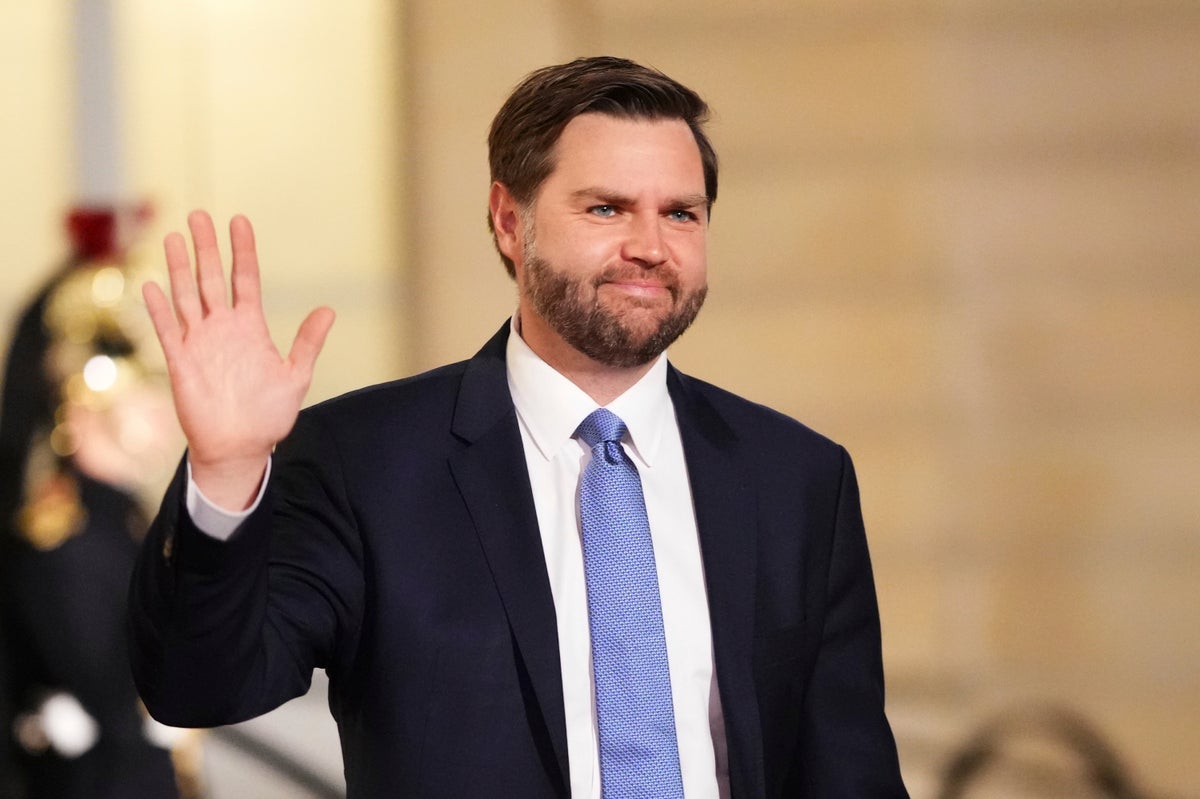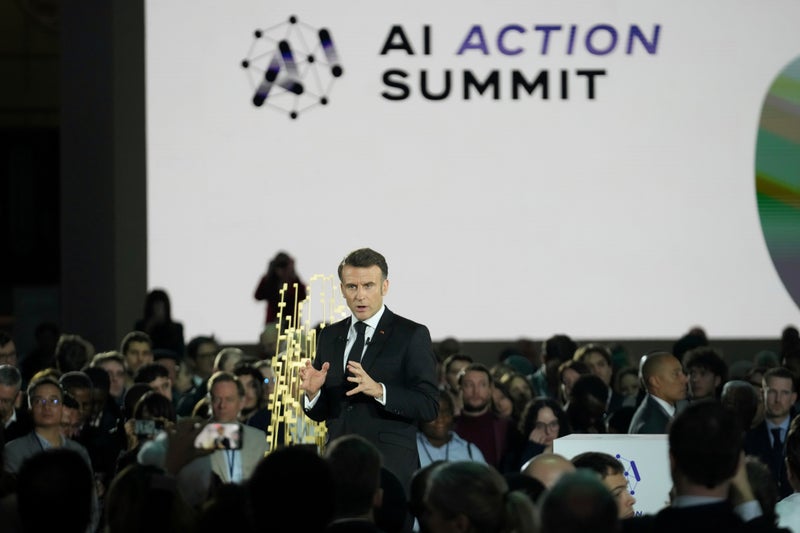AI Action Summit ends with US vice-president criticising European regulation and warning against cooperation with China. Political and business leaders descended on Paris this week for the third annual artificial intelligence summit with the technology causing tensions across the globe. Emmanuel Macron, who opened the summit with a montage of deepfakes of himself, acknowledged AI’s potential to “disrupt”. A day later, the schism threatened by the rapidly developing technology was apparent.
The AI Action Summit ended with the US vice-president criticising European regulation and warning against cooperation with China, while leaders from Washington and London snubbed a diplomatic declaration on “inclusive and sustainable” AI. Here are some takeaways from the conference. A speech by the US vice-president, JD Vance, symbolised a fracturing consensus on how to approach AI. He attended the summit with other global leaders, including the Indian prime minister, Narendra Modi, the Canadian PM, Justin Trudeau, and the head of the European Commission, Ursula von der Leyen.
In his speech in the Grand Palais, Vance made it clear the US was not going to be held back from developing the tech by global regulation or an excessive focus on safety. “We need international regulatory regimes that foster the creation of AI technology rather than strangle it, and we need our European friends, in particular, to look to this new frontier with optimism rather than trepidation,” he said.
China was also challenged. Speaking in front of the country’s vice-premier, Zhang Guoqing, Vance warned his peers against cooperating with “authoritarian” regimes – in a clear reference to Beijing. “Some of us in this room have learned from experience partnering with them means chaining your nation to an authoritarian master that seeks to infiltrate, dig in and seize your information infrastructure,” he said.
Delivered weeks after China’s DeepSeek rattled US investors with its powerful new model, Vance’s speech made it clear that America was determined to remain the global leader in AI. Unsurprisingly given Vance’s exceptionalism, the US declined to sign the diplomatic declaration on “inclusive and sustainable” AI published at the end of the summit. But the UK, a major player in AI development, also refused, stating that the document had not gone far enough in addressing global governance of AI and the technology’s impact on national security.
The failure to achieve consensus over a seemingly uncontroversial document, makes achieving meaningful global governance of AI appear an even more distant prospect. The first summit, at Bletchley Park in the UK in 2023, at least achieved an agreement between major nations and tech firms over AI testing – albeit on a voluntary basis. Gatherings at Bletchley and Seoul a year later had achieved careful agreement, yet signs this wouldn’t happen at the third gathering were already clear on the opening night. In his welcoming speech, Macron pushed the case for investors and tech companies to view France and Europe as AI hubs, while throwing shade at Donald Trump’s focus on fossil fuels.
Referring to the vast energy consumption needed by AI, Macron said France stood out due to its reliance on nuclear energy. “I have a good friend on the other side of the ocean saying ‘drill, baby, drill.’ Here, there is no need to drill. It’s plug, baby, plug. Electricity is available,” he said. It confirmed an undertone of differing national outlooks – and competition – at the summit.
Nonetheless Henry de Zoete, a former adviser on AI to Rishi Sunak in Downing Street, said the UK had “played a blinder”. “Not signing the statement brought vital good will with the Trump admin at little cost,” he wrote on X. Safety, top of the agenda at the UK summit, was not at the forefront in Paris despite ongoing concerns. Yoshua Bengio, a world-renowned computer scientist and chair of a major safety report released before the summit, told the Guardian in Paris that the world is not addressing the implications of highly intelligent AIs.
“We have a mental block on the idea that there will be machines that are smarter than us,” he said. Sir Demis Hassabis, the head of Google’s AI unit, called for unity in dealing with AI after the lack of agreement over a declaration. “It’s incredibly important the international community continues to come together and discuss the future of AI. We all have to be on the same page about the future we’re working to create.”.
Pointing to potentially worrying scenarios such as powerful AI systems behaving deceptively, he added: “These concerns are not far-off or far-fetched, nor are they limited to one particular geography. They are global concerns that require focused, international cooperation.”. Safety aside, some key themes were given a prominent hearing at the summit. Macron’s AI envoy, Anne Bouverot, said the current environmental trajectory of AI was “unsustainable” while the general secretary of the UNI Global Union, Christy Hoffman, said AI could become an “engine of inequality” by driving productivity gains at the cost of workers’ welfare.































